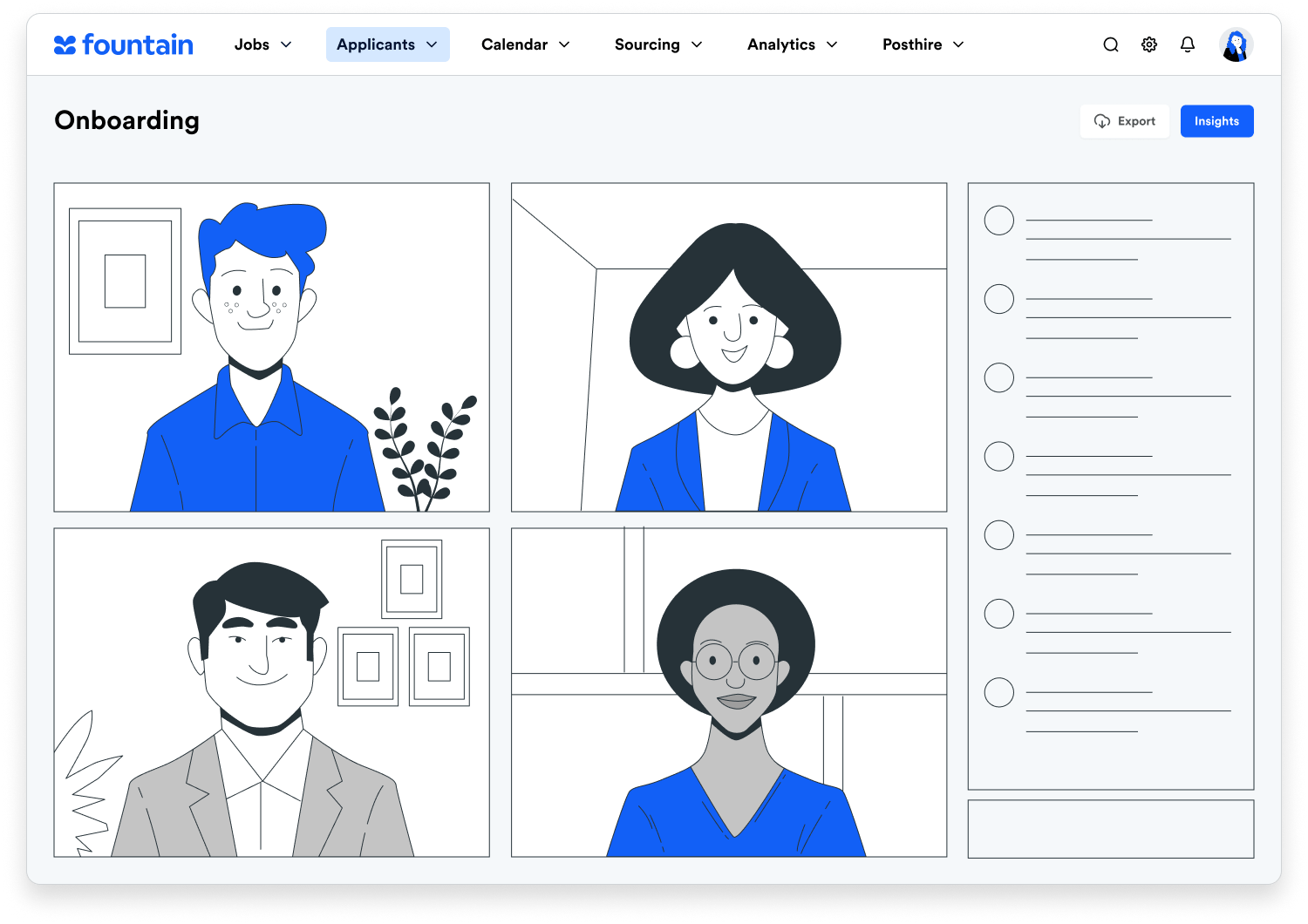In just the last 5 months, unemployment has completely reversed. Before Covid-19, the UK saw the lowest unemployment rate since the 1970s, leveling out at 3.9%. However, just a few months later, it’s already risen to over 20%, with the majority of newly unemployed people deriving from the hourly workforce, such as workers in retail, restaurants, hospitality, and more. Xi Weng, Fountain’s Account Executive for EMEA, explains that because of this unemployment surge, “job seekers are actually applying to 6 times more jobs than they would have been 3 or 4 months ago, which is making it very difficult for some recruiters, some of which are operating on lean recruitment teams.” This highlights the challenges recruiters are currently facing, and will continue to face, as we navigate this new norm we’re all living in.
A particularly interesting industry currently enduring changes and adapting to the new norm is the on-demand and gig economy. As Weng outlines, “On-demand companies on average are handling 10 times more applicants per recruiter than their traditional counterparts,” thus requiring that they focus on lean efficiencies rather than relying on the help of a more robust team to handle the number of applicants.
In order to better understand the challenges these companies are facing, and the new strategies they could be implementing, we had the opportunity to hear from Sophia Fellowes, the Global Operations Excellence Manager at Deliveroo, a company Fountain works with very closely for nearly 5 years. Deliveroo is a UK-based food delivery company with over 30,000 drivers across the globe, handling over 10,000 applicants per week.
Deliveroo, while operating in 12 different countries, still has the same six hiring stages, which are the application stage where they input basic information, document checks to ensure they meet the requirements in that specific country, online learning where they engage through animated videos and quizzes, agreement signing, the onboarding kit to ensure the riders are ready for the road, and the final approval stage to give them the green light to start riding for Deliveroo.
One of the biggest challenges Deliveroo faces is the attempt to standardize as much as possible throughout the recruiting process while still operating across their 12 different markets, but each market has specific regulatory requirements, which inevitably requires flexibility. Fellowes explains that this is really highlighted “when you’re onboarding a third party to work with you have to really have to make sure the third can work with each of the markets you’re in and that they can deal with all of the necessary processes for that market.”
Additionally, in light of Covid, Deliveroo has seen a spike in onboarding, which isn’t typical for them during the summer months. She explains that “In a time where we haven’t necessarily been prepared for that from a headcount perspective internally as we try to find efficiencies internally on how to onboard that many riders in such a short space of time.” Not to mention, in three of their markets, they were still operating face-to-face onboarding, which of course had to change as Covid started to rise, forcing them to shift over to a virtual onboarding process in just 2 weeks. While facing these issues, Fellowes, explains, they were also trying to “increase our conversion and become more efficient and provide a great applicant experience,” so having a strong, consistent automated system was key to allowing them to proceed and keep up with the demand they were experiencing.
For Deliveroo, they focus on 4 main items when perfecting their hiring process:
- Automate as much as possible
- Focus on the applicant experience
- Standardize, measure and test
- Remain flexible
With these key points in mind, Fellowes concludes by saying that “With all the changes in policies and regulations, and then being able to change these processes quickly and at scale, Fountain is really a platform which enables us to do those things and react quickly, so it’s been really great for us.”

